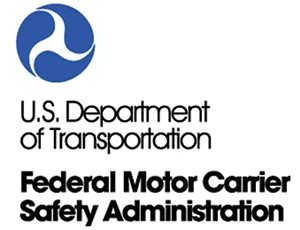Senior Reporter
Leasing Task Force Hears Concerns About Predatory Contracts

[Stay on top of transportation news: Get TTNews in your inbox.]
Truckers and industry experts warned that terms and conditions found in lease-purchase agreements offered by some motor carriers present pitfalls for drivers who may learn too late that they’re getting a bad deal.
The warnings came during the fourth meeting of the Federal Motor Carrier Safety Administration’s Truck Leasing Task Force, held March 21 at the Mid-America Trucking Show in Louisville, Ky., where live and virtual testimony from a small group of mostly owner-operators and also task force members shed light on red flags drivers should watch for.
The nine-member group, mandated by Congress, is continuing to focus on agreements that some task force members claim is leaving new or less savvy owner-operators saddled with debt, causing many to ultimately leave the business.
Keith Cooper of Des Moines, Iowa, has been a truck driver since 2004. About 2½ years ago he said his company transitioned him from being a company driver to signing a 30-page purchase agreement that he didn’t understand.

“I learned a lesson,” Cooper said. “To make a long story short, I didn’t get paid per mile what I needed to do to survive. I’m embarrassed.” To the task force, Cooper said, “I hope people are listening to you.”
Task force member Paul Cullen of The Cullen Law Firm said drivers who opt for these arrangements may lack sufficient credit to lease via more traditional financing options. But when the wrong motor carrier wields this level of control over a driver’s debt, it also has control over his business, he cautioned.
“Drivers are not salaried, they’re paid by the mile, or by the load,” Cullen said. “Everything about the economics of the driver’s work is controlled by the person who owns the debt.”
“I’ve heard this time and again to where people really didn’t know what they were getting into,” said truck driver Victor Grunden. “Before any trucking company or anybody else signs somebody to a lease, there has to be an offsetting witness — like an association, an attorney or an accountant.”
“We can do some simple things from an educational standpoint,” added task force member Joshua Krause of OTR Leasing. “But if there is no enforcement of someone who is flagrantly disregarding the rules and process, this is somewhat of a fool’s errand. Enforcement is the only thing that will drive change.”
Greg Hewitt of DHL Express considers whether the trucking industry is prepared for a greener future. Tune in above or by going to RoadSigns.ttnews.com.
Complicating enforcement is a lack of data on how prevalent the problem has become. While task force members believe that predatory truck purchase leases are common, they have not yet identified how widespread they are.
Tom Weakley, director of operations for the Owner-Operator Independent Drivers Association Foundation, told the task force that data reviewed by his group indicates only a small percentage of its members have been involved in lease-purchase agreements.
“That says two things to us,” Weakley said. “One, it says that our members — who have 25 or 30 years’ average experience — probably have never been in a lease-purchase program. And, two, we don’t really know how many didn’t make it in lease-purchase because they went out of business and you can’t contact them. So, you don’t get really good data.”
As a result, he said, the numbers could be underestimated. “It’s really hard to determine who’s right and who’s wrong, because it’s so complicated,” Weakley said.
Want more news? Listen to today's daily briefing above or go here for more info
“I’ve been aware of lease-purchase programs forever and ever,” said OOIDA President Todd Spencer. He stressed that the economics of some of them place too much control in the hands of carriers. “Can you imagine any employer in America, or anywhere else, being able to get somebody to walk in the door [and agree to] ‘I’m only going to pay you piece work. So if you do something I’m going to pay you and I’m going to charge you for everything around you.’ An employer can’t lose in that situation.”
The task force will next meet on two yet-to-be named dates this summer. Ultimately, the group will forward its recommendations to Congress and the secretaries of Labor and Transportation.
“Drivers are essential workers deserving of respect,” FMCSA Chief Counsel Brian Stansbury told the committee in opening remarks. “It’s critical to us that we do what we can to help experienced drivers thrive in the industry. Done properly, truck leasing can open the door to prosperity.”





